Since e-commerce first came about over forty years ago, it has become one of the fastest-growing consumer markets in the world. From big-box retailers to small businesses, everyone is selling online, and everyone's shopping there, too. The ever-growing popularity of e-commerce also means that you have plenty of e-commerce platforms to choose from if you're planning on launching an online store.
So, how do you know which e-commerce platform is best for you? Read on to find out! In the following article, we're going to talk about how e-commerce platforms work, the pros and cons of their different types, and how to identify which solution meets the needs of small business owners best.
What Is an E-Commerce Platform?
Before diving into which e-commerce platform would be best for you, we're going to provide you with some background information on e-commerce platforms in general. For starters, an e-commerce platform is a piece of software that allows businesses to sell online. As a result, consumers get to use it to shop online. It's an application that offers front-end features like browsing and purchasing, as well as back-end business features, such as order management, payment processing, and inventory management.
Types of E-commerce Platforms
Given the growing popularity of e-commerce, it should come as no surprise that you have quite a few different platforms to choose from. While the wealth of options is generally a positive thing, the saturated market can make it difficult to make the final choice. Below, we will go over the most popular types of e-commerce platforms out there.
Native E-commerce Platforms
Also known as a hosted e-commerce platform, it's a type of platform typically operates based on a software-as-a-service model. The majority of features are configured out-of-the-box, which may include cloud-based hosting, shopping baskets, sales and marketing automation, order management, inventory management, plug-ins, and more.
The Most Popular Native E-commerce Platforms
The most popular native e-commerce platforms vary depending on the region, target audience, and specific business needs. However, some of the most widely recognized and popular native e-commerce platforms globally include Shopify, Magento, and Woo Commerce.
Shopify
Shopify is renowned for its user-friendliness and ease of setup, making it a popular choice among small to medium-sized businesses. It offers a vast array of customizable templates and a rich ecosystem of plugins that extend its functionality. Shopify supports integrated payment processing and multi-channel selling, allowing merchants to sell on various platforms like Facebook, Instagram, and Amazon. Its robust support and extensive community make it a reliable choice for entrepreneurs looking to quickly establish an online presence without deep technical knowledge.
Magento
Magento, now part of Adobe Commerce, is a highly scalable and customizable platform ideal for larger enterprises with complex e-commerce needs. It provides extensive control over the look, content, and functionality of an online store. With a vast marketplace of extensions and themes, Magento can be tailored to fit unique business requirements. It boasts powerful SEO and marketing tools, making it a strong contender for businesses looking to grow their online footprint. However, its complexity may require dedicated developer support for optimal use.
Wix Online Store Builder
Wix combines the drag-and-drop simplicity of Wix’s website builder with robust e-commerce capabilities. It is highly user-friendly, making it ideal for small to medium-sized businesses that want to quickly set up an online store. It also offers a wide range of templates and customization options, allowing businesses to create unique and professional-looking stores. What's more, the platform includes integrated SEO and marketing tools to help businesses attract and retain customers.
Advantages of Native E-Commerce Platforms
Simplified payments – Native e-commerce platforms are subscription-based, which means that you pay a monthly fee to access a certain set of tools and features.
Quick launch – You can get started the moment you're ready to go. The host already has the framework and infrastructure in place. You just need to personalize it and adjust it to your needs.
Robust support – If you encounter technical issues, you have access to a team of experts whose sole focus is on resolving the problem as quickly as possible.
Disadvantages of Native E-Commerce Platforms
Limited customization options – Native platforms can be customized to a certain extent, but are limited by what the vendor allows or has the technical infrastructure to support.
Increasing subscription costs – The larger your business and the greater your demands, the more you will have to pay for your subscription.
Dependency on vendor for updates and security – Using a native e-commerce platform means relying on the vendor for updates, security patches, and new features.
Semi-native E-commerce Platforms
As a middle-ground option, it's a type of an e-commerce solution that is often open-source, meaning that you have unrestricted editing access and greater control over a modular system. Most of the features will require specific configuration, but you also have access to a variety of plug-ins which can be set up in any way you see fit.
The Most Popular Semi-native E-commerce Platforms
Semi-native e-commerce platforms blend the ease of use and built-in functionality of native platforms with the flexibility and customization capabilities of custom-developed solutions. Here’s an overview of some of the most popular semi-native e-commerce platforms.
Shopify Plus
Shopify Plus is the enterprise version of Shopify, designed for high-growth, high-volume merchants. It offers advanced features and greater customization options compared to the standard Shopify plan. Shopify Plus includes advanced automation tools and custom integrations, enhanced performance and scalability, dedicated support, and customizable checkout. It also provides access to Shopify’s Liquid code, allowing for more extensive customization.
Drupal Commerce
Drupal Commerce is an open-source e-commerce solution built on the Drupal content management system. It offers extensive customization options and is well-suited for businesses requiring a highly tailored e-commerce solution. Deep integration with Drupal provides robust content management capabilities, while its highly customizable nature and strong community support make it scalable and suitable for complex e-commerce needs.
Woo Commerce
Woo Commerce is a flexible, open-source e-commerce solution built on Word Press. It’s an excellent choice for those familiar with Word Press, providing a seamless way to add e-commerce functionality to an existing Word Press site. In addition, Woo Commerce offers an extensive library of plugins and themes, strong community support, and is highly scalable, making it suitable for small to medium-sized businesses.
Advantages of Semi-native E-commerce Platforms
Greater customization – There are almost no limits to what features a semi-native online store could potentially support or to the way it could work.
Modular system – You still have access to pre-built plug-ins and extensions, which can speed up the development process quite a bit.
Advanced security – Semi-native platforms tend to have several layers of cybersecurity, allowing both company and customer data to be protected against data breaches.
Disadvantages of Semi-native E-commerce Platforms
Harder to set-up – Native platforms can be set up by someone with little to no experience with e-commerce platforms. But with a semi-native platform, you may need professional assistance when it comes to finding a hosting service and implementing unique features, among other things.
Lack of expert support – Because a semi-native solution has far more customization options, it means that you may run into unique issues. If you don't partner with a developer, you won't necessarily have any built-in assistance from the customer support team if technological troubles arise.
Potential for higher maintenance costs – The flexibility and customization of semi-native platforms often require continuous involvement from developers or technical staff, which can lead to higher long-term costs.

Bespoke E-commerce Platforms
Bespoke e-commerce platforms are custom-built solutions tailored specifically to meet the unique needs and requirements of a particular business. Unlike off-the-shelf or semi-native platforms, bespoke platforms are developed from the ground up, offering unparalleled flexibility and customization. Such platforms are typically created by a team of developers who work closely with the business to understand its specific goals, workflows, and customer interactions.
Advantages of Native E-commerce Platforms
Built for you – The more individualized and specific requirements you have, the less likely it is that existing solutions will be able to meet your needs. A customized platform offers everything you could ever want. It will match your brand voice, identity, product, and shopping needs.
Scalable – A bespoke solution isn't just built for your business as it is today, but it's also created with your future expansion and eventual needs in mind. With this model, it's less likely that you will ever need to re-platform.
Security and compliance – Custom-built e-commerce platforms can be designed with robust security measures to protect against cyber threats and ensure compliance with industry regulations. This attention to security helps in safeguarding sensitive customer information and building trust with users.
Read also: How to design an ADA-compliant website
Disadvantages of Native E-commerce Platforms
Longer development process – As with any custom project created from scratch, the timeline is usually longer than with an out-of-the-box solution. You sacrifice quick development time for greater control and customizability.
Can be more expensive – The budget for such a solution depends on your requirements, so it's not necessarily more expensive than other options. However, as you might imagine, the more complex features you need, the higher the costs to fulfil those demands will be.
Maintenance and updates require technical expertise – Unlike native platforms that come with built-in support and regular updates from the vendor, bespoke platforms require continuous maintenance and updates managed internally or through a dedicated development team.
Headless E-commerce Platforms
Headless e-commerce platforms are a type of e-commerce architecture where the front-end, the part of the website that customers interact with, is separated from the back-end, the part that manages the website’s data, logic, and content. It allows businesses to have more flexibility and control over the user experience while still utilizing powerful back-end functionalities.
The Benefits of Headless Technologies
Flexibility in front-end technologies – With a headless approach, businesses can choose any frontend technology that best suits their needs, such as React, Angular, Vue.js, or others. It allows for the creation of highly dynamic and responsive web applications that can deliver a superior user experience.
Enhanced personalization – Headless e-commerce platforms enable businesses to deliver highly personalized shopping experiences. By leveraging customer data from the backend, businesses can tailor the content, product recommendations, and marketing messages on the front-end.
Future-proofing – The flexibility and modularity of headless e-commerce platforms make them more adaptable to future technological advancements. As new front-end technologies emerge, businesses can easily integrate them into their existing architecture without overhauling the entire system.
The Disadvantages of Headless Technologies
Complexity in implementation – The decoupled nature of headless platforms requires a more complex setup and development process. Businesses may need skilled developers to build and maintain the separate front-ends and ensure smooth API integrations.
Higher initial costs – The need for custom front-end development and the implementation of API-driven architecture can result in higher initial costs compared to traditional e-commerce platforms. This investment can be substantial, particularly for small businesses or start-ups with limited budgets.
Ongoing maintenance – Managing and updating separate frontend and backend systems can require ongoing maintenance and coordination, which may lead to increased operational costs and the need for continuous technical support.
Cloud-Based Platforms vs. On-Premises Platforms
A cloud-based e-commerce platform is a service that allows businesses to manage an online store and operations over the internet. Such platforms host the software and data on remote servers, enabling users to access their store from anywhere with an internet connection.
On the other hand, an on-premise platform is more secure, as the software and data is hosted on servers in a company's actual building. On the flip side, such servers cannot be accessed from anywhere in the world. Worse yet, in such a scenario, you have to take care of server maintenance, which can be a costly and time-consuming process.
Which Cloud Service Is Best for E-Commerce?
Amazon Web Services (AWS) is widely regarded as the best cloud service for e-commerce. It offers a comprehensive range of services, including scalable computing power, storage, databases, and advanced features like machine learning and analytics. Aside from that, its global infrastructure ensures high availability and low latency for e-commerce websites.
What Is an Example of Cloud Computing in E-Commerce?
An example of cloud computing in e-commerce is the use of Shopify. Shopify hosts its e-commerce platform on cloud servers, allowing businesses to build, manage, and scale online stores without worrying about server maintenance, updates, or security. It enables businesses to focus on sales and customer service rather than IT infrastructure.
Key Features of E-Commerce Platforms
When evaluating e-commerce platforms, it's important to consider a range of specific features that can impact a store's functionality, user experience, and overall success. Here are some essential features to look for.
Payment Processing
A versatile e-commerce platform should offer support for multiple payment gateways, including major credit cards, PayPal, Apple Pay, Google Wallet, and other popular options. Catering to different customer preferences with a variety of payment methods helps in reducing cart abandonment rates.
Mobile Responsiveness
With a growing number of customers shopping on mobile devices, mobile-responsive templates and designs are essential. Ensuring that the store looks and functions well on smartphones and tablets will help you provide a seamless shopping experience for mobile users.
Security Features
Robust security measures are critical for protecting customer data and building trust. Key security features include SSL certificates, PCI compliance, two-factor authentication, and regular security updates.
Product Management
Efficiently managing products is crucial. Essential features include bulk product uploads, options for product variants, inventory tracking, and categorization capabilities. For digital goods or subscription services, advanced product management features can be beneficial.
Order Management
Effective order management features include order tracking, automated email notifications, simplified returns processing, and real-time shipping rates and label integration with shipping carriers. With the help of such functionalities, you will be able to streamline order fulfilment processes with ease.
Customer Management
Retaining and engaging customers requires robust customer management tools. Features to look for include customer profiles, order histories, segmentation capabilities, and the option for customer accounts. CRM system integration can further enhance customer relationship management.
Marketing Tools
Ideally, you should look for e-commerce platforms with marketing-related functionalities, such as discount and coupon code creation, abandoned cart recovery, and social media connectivity. That way, you will have an easier time reaching potential customers.
Scalability
An e-commerce platform should grow with the business. The platform should handle increasing traffic and sales volumes without compromising performance. Features supporting scalability include unlimited product listings, flexible pricing plans, and a robust infrastructure.
Analytics and Reporting
The platform you end up choosing should provide comprehensive analytics and reporting features, including sales reports, traffic analysis, customer behavior insights, and conversion tracking. These capabilities support data-driven decision-making to enhance and optimize store performance.
Customer Support
Dependable customer support can significantly impact the user experience with an e-commerce platform. Seek out platforms that offer 24/7 support through various channels, including live chat, phone, and email.
How To Choose an E-Commerce Platform That Fits You?
Choosing the right e-commerce platform is crucial for the success of your online business. The right platform will not only support your current business needs, but also scale with you as you grow. However, with so many options available, selecting the right one can be daunting. Here are some key considerations to help you choose an e-commerce platform that fits your business perfectly.

Functionality
The functionality of an e-commerce platform encompasses all the built-in features and tools that support the creation, management, and optimization of your online store. Look for platforms that offer robust inventory management, order processing, customer management, and analytics tools. Additionally, advanced functionality such as SEO tools, marketing features, and mobile optimization can significantly enhance your store's performance and user experience.
Ease of Use
Ease of use is a crucial factor, especially if you lack technical expertise. The platform should have an intuitive interface and user-friendly design, making it easy to set up and manage your store. Platforms that offer drag-and-drop builders, straightforward navigation, and clear documentation will help you save time and reduce frustration, allowing you to focus on growing your business.
Pricing
Understanding the pricing structure of each platform is vital to ensure it fits within your budget. Consider not only the initial setup costs but also ongoing expenses like monthly subscriptions, transaction fees, and costs for additional features or plug-ins. Transparent pricing without hidden fees will help you manage your expenses better and avoid unexpected costs.
Access to Templates and Plug-Ins
Access to a variety of templates and plug-ins allows you to customize your store to match your brand and expand its functionality. High-quality, customizable templates can help you create a professional-looking store, while a wide range of plug-ins can add necessary features such as payment gateways, shipping options, and marketing tools. Evaluate the platform’s library of templates and plug-ins to ensure they meet your design and functional needs.
Customizability
The ability to customize your e-commerce platform to suit your specific business needs is essential for creating a unique and engaging shopping experience. Platforms that allow for extensive customization, whether through coding or flexible settings, enable you to tailor the look, feel, and functionality of your store. This is particularly important for businesses with unique products or complex workflows that require specialized features.
Safety
Security is a top priority for any e-commerce platform, as it involves handling sensitive customer information and transactions. Ensure the platform provides robust security measures such as SSL certificates, PCI compliance, regular security updates, and fraud prevention tools. A secure platform will protect your business and customers from potential threats and build trust in your brand.
Customer Support
Reliable customer support can make a significant difference in your experience with an e-commerce platform. Look for platforms that offer comprehensive support options, including live chat, phone support, email support, and a detailed knowledge base. Responsive and helpful customer support will assist you in resolving issues quickly and efficiently, ensuring smooth operation of your store.
Integrations
Integrations with other tools and services are crucial for streamlining your business operations. Ensure the platform can seamlessly integrate with your existing systems, such as CRM, ERP, accounting software, and marketing tools. Robust integration capabilities will enhance your workflow, improve data accuracy, and reduce manual tasks.
Past E-commerce Experiences
Reflect on any past experiences you or your team have had with e-commerce platforms. Familiarity with a particular platform can reduce the learning curve and implementation time. If you’ve had negative experiences with certain platforms, it’s valuable to identify those pain points and seek alternatives that address those issues. Your past experiences can guide you toward a platform that aligns better with your expectations and business processes.
Maintenance
Consider the level of maintenance each platform requires. Some platforms, particularly open-source ones like Woo Commerce or Magento, require regular updates, security patches, and possibly custom development work. Managed platforms like Shopify or Big Commerce handle much of the maintenance for you, which can be a significant advantage if you want to focus more on running your business than on technical upkeep.
Hosting Platform
The choice between self-hosted and cloud-hosted platforms is another critical factor. Self-hosted platforms like Magento or Woo Commerce offer more control and customization options but require you to manage your hosting environment. This can include server maintenance, security, and performance optimization. On the other hand, cloud-hosted platforms like Shopify and Big Commerce offer a more hands-off approach, handling hosting and ensuring reliability and scalability.
Top E-Commerce Platforms for Small Businesses
As small businesses seek to expand their reach and sales through online channels, choosing the right e-commerce platform becomes a vital step. The ideal platform should be easy to use, cost-effective, and capable of growing with the business. Here’s a comprehensive look at some of the leading e-commerce platforms designed to support small businesses, along with their key benefits and limitations.
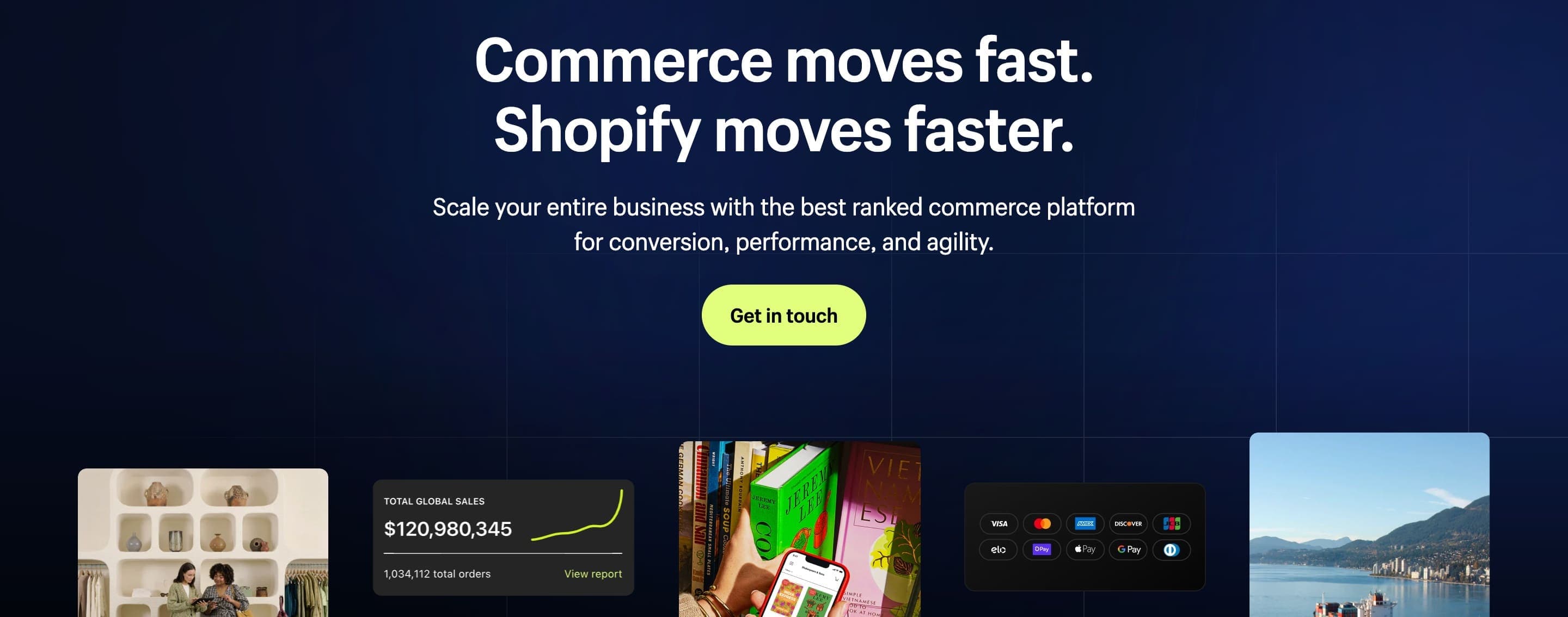
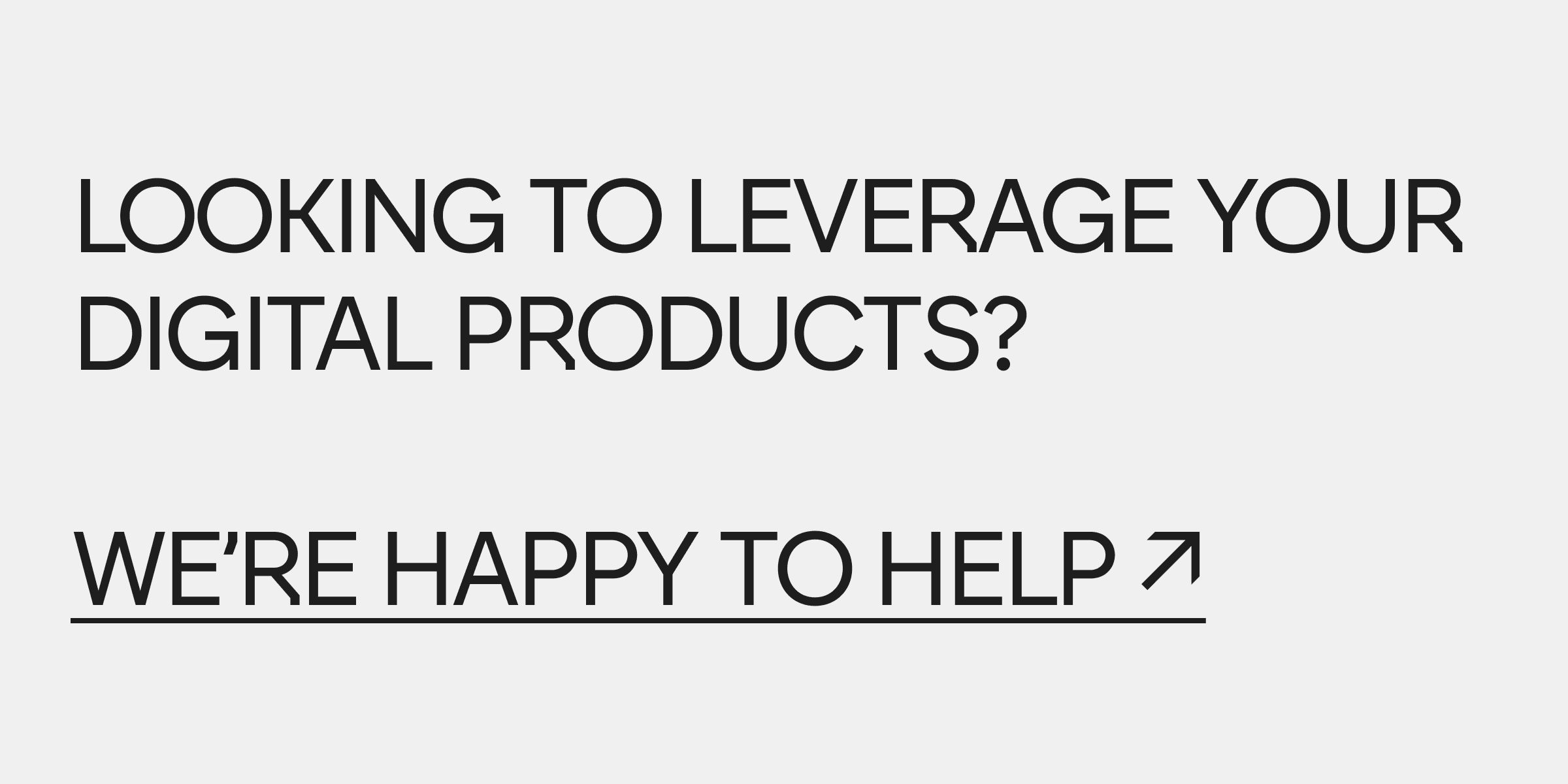
Shopify
Shopify is a powerful software-as-a-service (SaaS) platform tailored for e-commerce businesses. It boasts over one hundred free and premium themes and includes features that support dropshipping and multichannel selling. Additionally, Shopify offers robust search engine optimization tools and efficient payment processing with relatively low transaction fees.
However, Shopify can become quite costly. The basic plan offers limited features and may not suffice for most business needs. Another downside is the difficulty in transitioning away from Shopify. If you decide to migrate to a different platform, you can only export a CSV report.
Benefits
- Access to over one hundred free and premium themes.
- Features that support dropshipping and multichannel selling.
- Efficient payment processing with relatively low transaction fees.
Downsides
- Can become expensive, especially with additional features and apps.
- Basic plan has limited features and may not meet most business needs.
- Difficult to switch to a different platform, with limited data export options.
Big Commerce
Big Commerce is well-suited for large companies, offering extensive customization options and integrated web hosting. It supports both multichannel and international selling and is capable of handling heavy user loads, which is beneficial for processing large volumes of orders simultaneously.
However, these powerful features come with a steep learning curve. It might take some time to master the platform's complexities. Additionally, Big Commerce may not be the best choice for those on a tight budget or looking to create a visually appealing store quickly. The themes can be pricey, and the design options may not be as user-friendly as other platforms.
Benefits
- Extensive customization options and integrated web hosting.
- Supports multichannel and international selling.
- Capable of handling heavy user loads for high-volume order processing.
Downsides
- Steep learning curve due to complex features.
- Not ideal for budget-conscious businesses.
- Expensive themes and less intuitive design options.
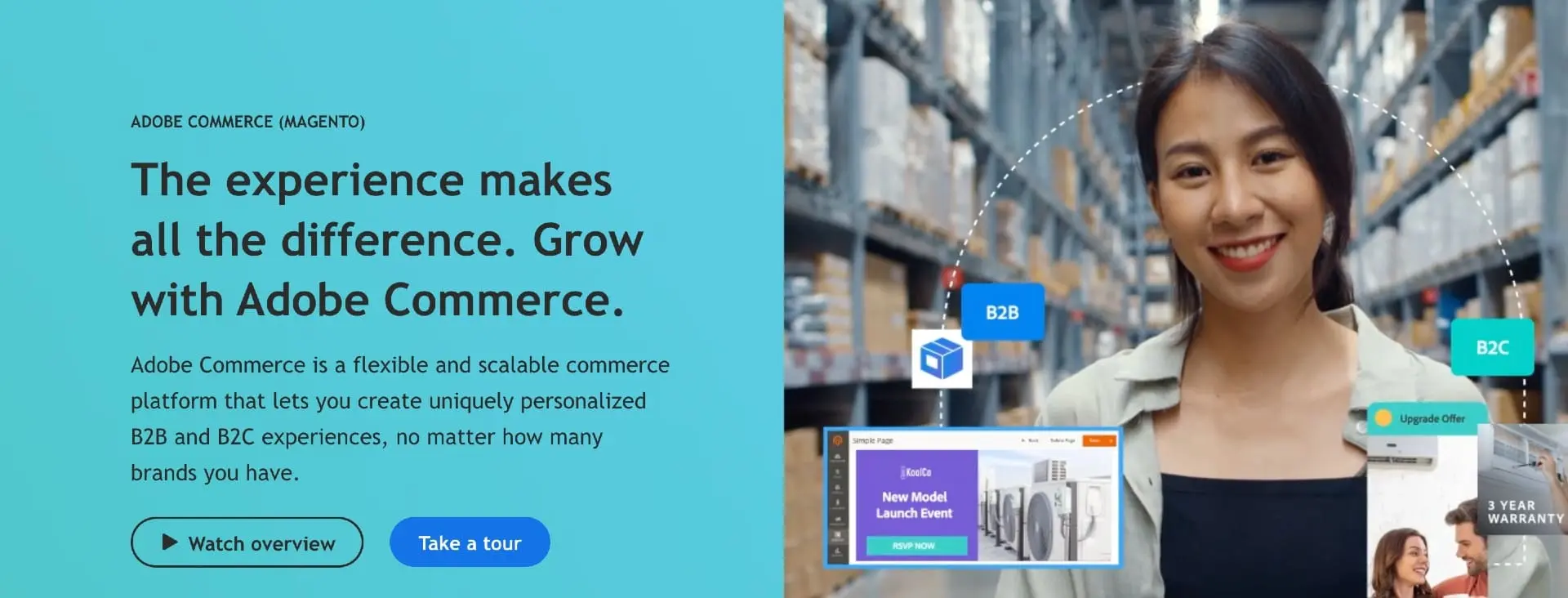
Adobe Commerce
If you have PHP programming experience or the budget to hire a developer, Adobe Commerce might be an excellent choice. It's a non-hosted platform is ideal for developers seeking a flexible system to customize extensively.
Adobe Commerce utilizes a cloud-based headless architecture, making it capable of managing high user traffic efficiently. It also offers extensive integration options, including warehouse management systems and customer relationship management software. Additionally, it features AI-driven product recommendations, which can enhance conversion rates and customer retention.
However, it can be challenging for beginners with limited technical knowledge. Additionally, Adobe Commerce lacks essential tools for creating a multichannel selling strategy and accepting foreign currencies.
Benefits
- Flexible system suitable for developers with PHP programming skills.
- Efficiently handles high user traffic due to its cloud-based headless architecture.
- Integrates with various solutions, including warehouse management and CRM software.
Downsides
- Difficult to use for beginners without technical expertise.
- Lacks tools for multichannel selling strategies.
- Does not support accepting foreign currencies.
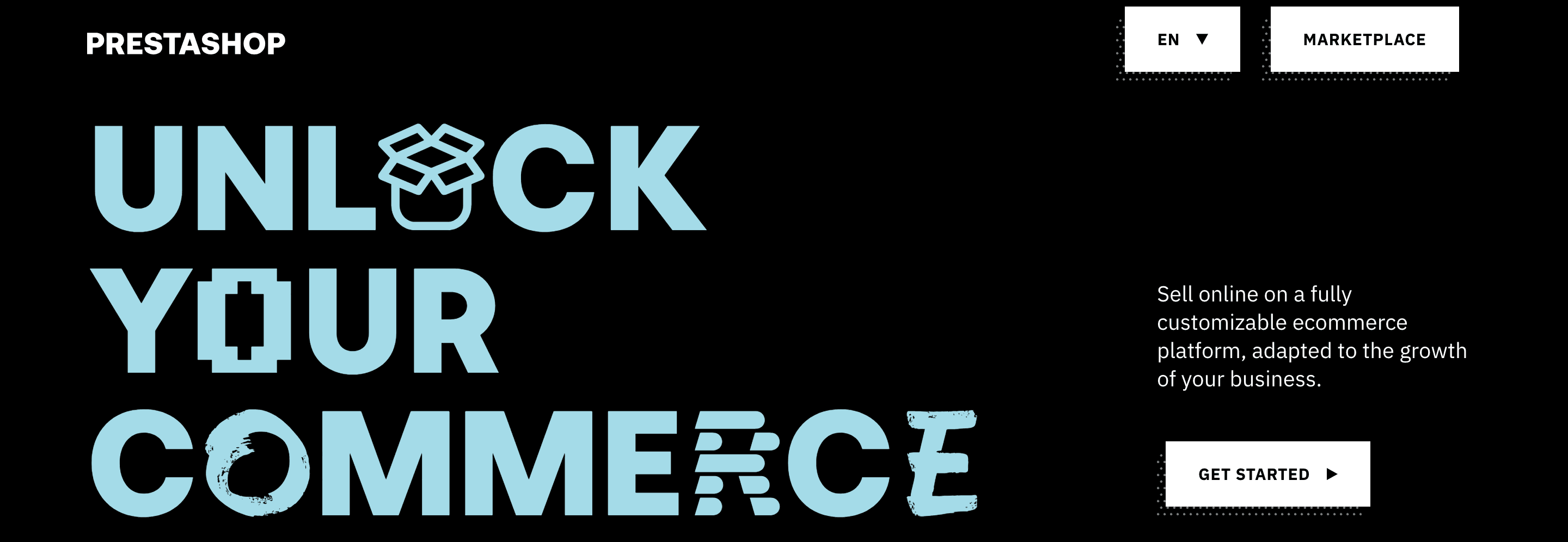
Presta Shop
Presta Shop is an open-source e-commerce platform ideally suited for businesses that are just starting out. It offers essential business tools and features, such as an online shopping cart, inventory tracking, and analytics.
However, Presta Shop does have several drawbacks. Notably, it lacks built-in customer support, requiring users to troubleshoot issues independently or seek help from the community of other store owners. Additionally, the platform includes numerous unvetted add-ons and modules.
As a result, PrestaShop is best for those with some coding knowledge. Despite these challenges, it offers more flexibility than many more user-friendly solutions.
Benefits
- Ideal for start-ups with essential business tools.
- Offers flexibility for users with coding knowledge.
- Provides fundamental features like an online shopping cart, inventory tracking, and analytics.
Downsides
- No built-in customer support, relying on community assistance.
- Contains many unvetted add-ons and modules.
- May require technical skills for effective use and troubleshooting.
Woo Commerce
Woo Commerce is an add-on designed to be used with Word Press, the world’s most popular content management system. It enables users to manage orders and inventory, process secure and flexible payments, and offers a range of other e-commerce functionalities.
However, Woo Commerce may not be very useful for those unfamiliar with Word Press. Additionally, significant customization of e-commerce sites requires combining Woo Commerce with multiple other add-ons. This makes Woo Commerce similar to Presta Shop. While it is flexible and customizable, it lacks advanced features and user-friendliness.
Installing numerous add-ons can complicate the maintenance of your online store. Moreover, some add-ons pose security risks. For instance, an add-on designed to hijack user data could lead to the theft of your customers' personal information.
Benefits
- Integrates seamlessly with Word Press.
- Manages orders and inventory efficiently.
- Processes secure and flexible payments.
Downsides
- Requires familiarity with Word Press.
- Customization necessitates using multiple add-ons.
- Additional add-ons can complicate maintenance and pose security risks.
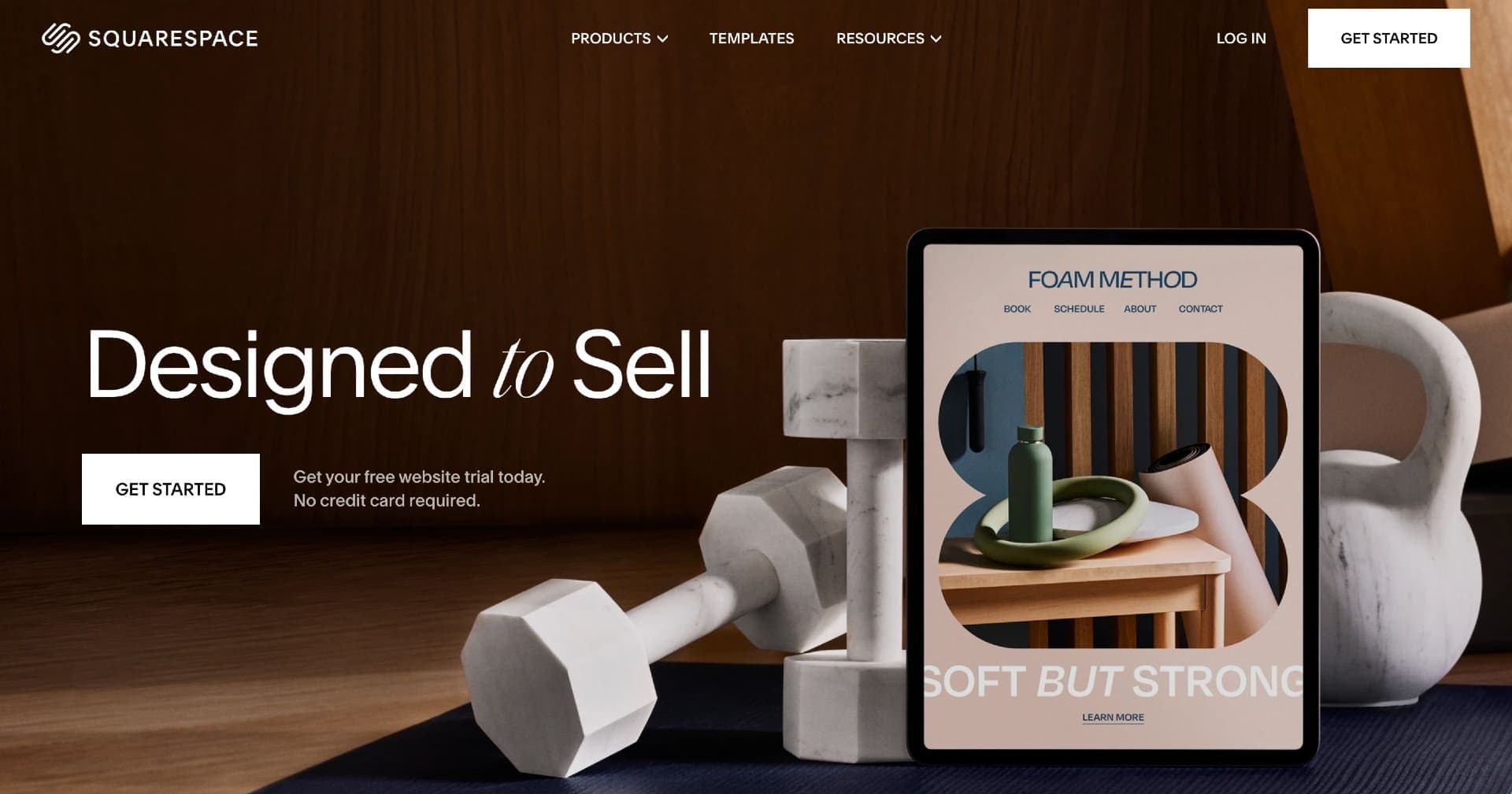
Squarespace
Squarespace is a versatile and design-centric e-commerce platform known for its visually appealing templates and intuitive drag-and-drop interface. It is an all-in-one solution that includes web hosting, domain registration, and a variety of built-in tools to help small businesses create a professional online presence quickly and easily.
Squarespace’s comprehensive suite of features includes customizable templates, integrated blogging capabilities, and robust e-commerce functionalities, such as inventory management, order processing, and payment handling.
Despite its strengths, Squarespace has a few limitations. It offers fewer e-commerce features compared to specialized platforms, and its transaction fees can add up on lower-tier plans. Additionally, while its design options are beautiful, they may not offer the same level of flexibility and customization as some other platforms.
Benefits
- Visually appealing, professional templates.
- Easy-to-use drag-and-drop interface.
- Comprehensive all-in-one solution with hosting and domain services included.
Downsides
- Limited e-commerce features compared to specialized platforms.
- Transaction fees on lower-tier plans.
- Design options, while attractive, may lack advanced customization flexibility.
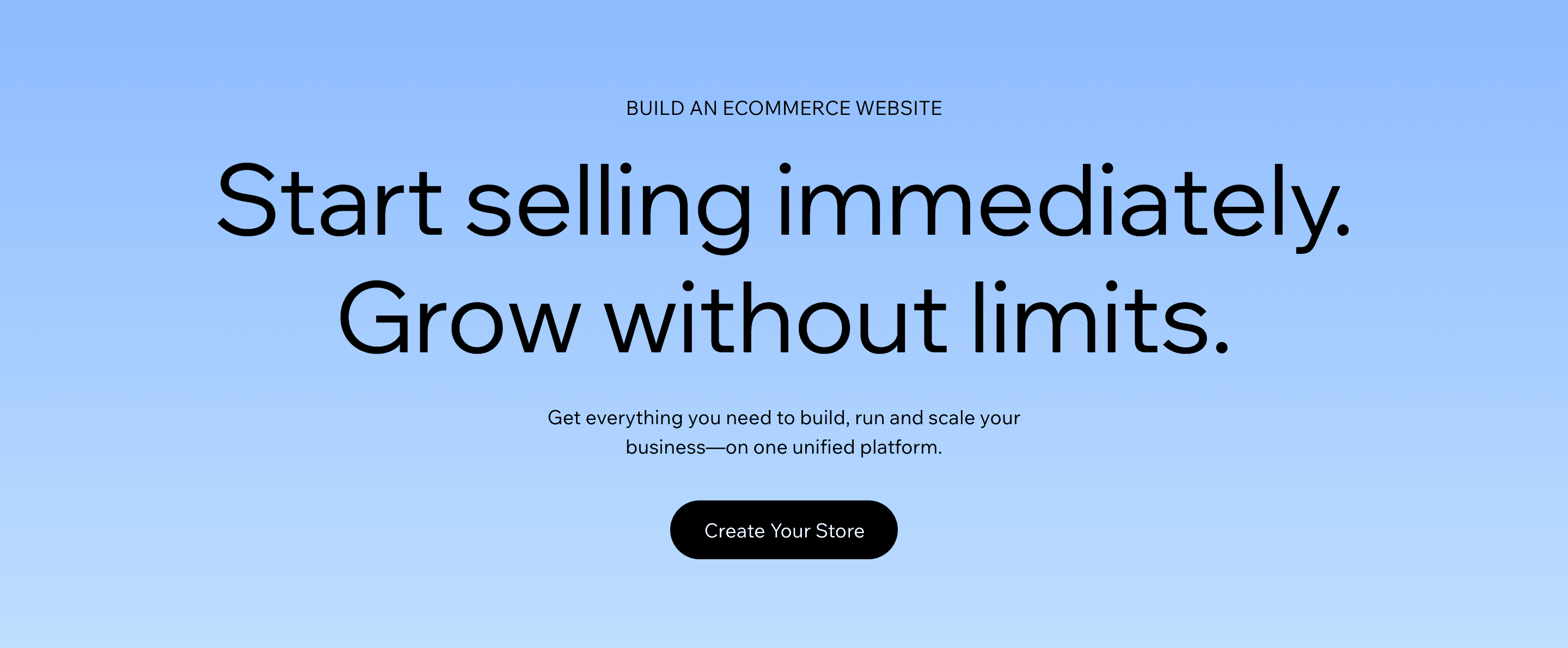
Wix
Wix is one of the most popular drag-and-drop website builders available, known for its ease of use and versatility. It provides web hosting, domain name registration, and a wide variety of customizable templates. While Wix offers a free plan for building websites, it does not include any e-commerce features. Therefore, to launch an online store, upgrading to a business and e-commerce plan is essential.
For e-commerce functionality, Wix allows users to accept online payments and track orders. It also supports selling products on various social media platforms, including Instagram. However, it lacks some critical inventory management features, such as low-stock alerts, which can be a drawback for businesses with extensive inventories.
Benefits
- User-friendly drag-and-drop website builder.
- Provides web hosting and domain name registration.
- Supports online payments and social media selling.
Downsides
- Free plan does not include e-commerce features.
- Essential to upgrade to a business and e-commerce plan for online selling.
- Lacks key inventory management features like low-stock alerts.

Volusion
Volusion is a comprehensive e-commerce platform designed to provide businesses with all the tools needed to create and manage an online store. It offers essential features such as inventory management, SEO tools, and marketing capabilities, making it a well-rounded choice for small to medium-sized businesses. Volusion is known for its built-in customer relationship management (CRM) tools and does not charge transaction fees, which can be a significant cost saver.
Still, Volusion does have some limitations. The interface can be less intuitive for beginners, which may lead to a steeper learning curve. Additionally, the platform offers fewer design options compared to some competitors, which can restrict the aesthetic customization of your store. While Volusion is robust, it may not scale as well for very large stores with extensive product catalogs.
Benefits
- Comprehensive features including inventory management, SEO, and marketing.
- No transaction fees.
- Built-in CRM tools for managing customer relationships.
Downsides
- Less intuitive interface for beginners.
- Limited design options.
- May not scale well for very large stores with extensive product catalogs.
What Is the Best E-Commerce Platform for Small Business?
Ultimately, the best platform is one that aligns with the business’s budget, technical capabilities, and growth plans. For businesses looking for ease of use and a quick setup, Shopify and Squarespace are excellent choices. For those with more technical expertise who want extensive customization, Woo Commerce is a strong contender. If built-in features and scalability are crucial, Big Commerce offers robust options.
Frequently Asked Questions
Is Shopify Worth It for a Small Business?
Yes, Shopify is worth it for a small business. It offers an intuitive interface, a wide range of customizable templates, and extensive integrations. Shopify also provides reliable customer support and scalable features, making it suitable for businesses of various sizes. However, the cost can add up with add-ons and transaction fees.
What Is the Easiest E-Commerce Platform?
Wix is often considered the easiest e-commerce platform. It features a user-friendly drag-and-drop interface, making it accessible for those with little to no technical expertise. Wix also offers a variety of templates and integrated tools for managing products, payments, and marketing.
Which E-Commerce Platform Is Best for Dropshipping?
Shopify is considered the best e-commerce platform for dropshipping. It integrates seamlessly with popular dropshipping apps like Oberlo and Spocket, simplifying the process of finding, listing, and shipping products directly from suppliers. Shopify's robust infrastructure and support make it an ideal choice for dropshipping businesses.
Is Any E-Commerce Platform Free?
Yes, several e-commerce platforms offer free plans or open-source solutions that allow you to set up an online store without upfront costs. Some of the popular free e-commerce platforms include Magento Open Source, Square Online, and Spree Commerce.
Need Help With an Online Store? Let Us Lend You a Hand!
Are you planning on launching an online storefront? If you already have an online store, maybe you'd like to make it even better than it already is? Either way, we would be more than happy to lend you a hand. We will do our best to provide you with just what you need, whether it be setting up a semi-native online store or building a bespoke e-commerce solution from scratch. You just need to fill out our contact form and wait for our reply. We will get back to you as soon as we can!












